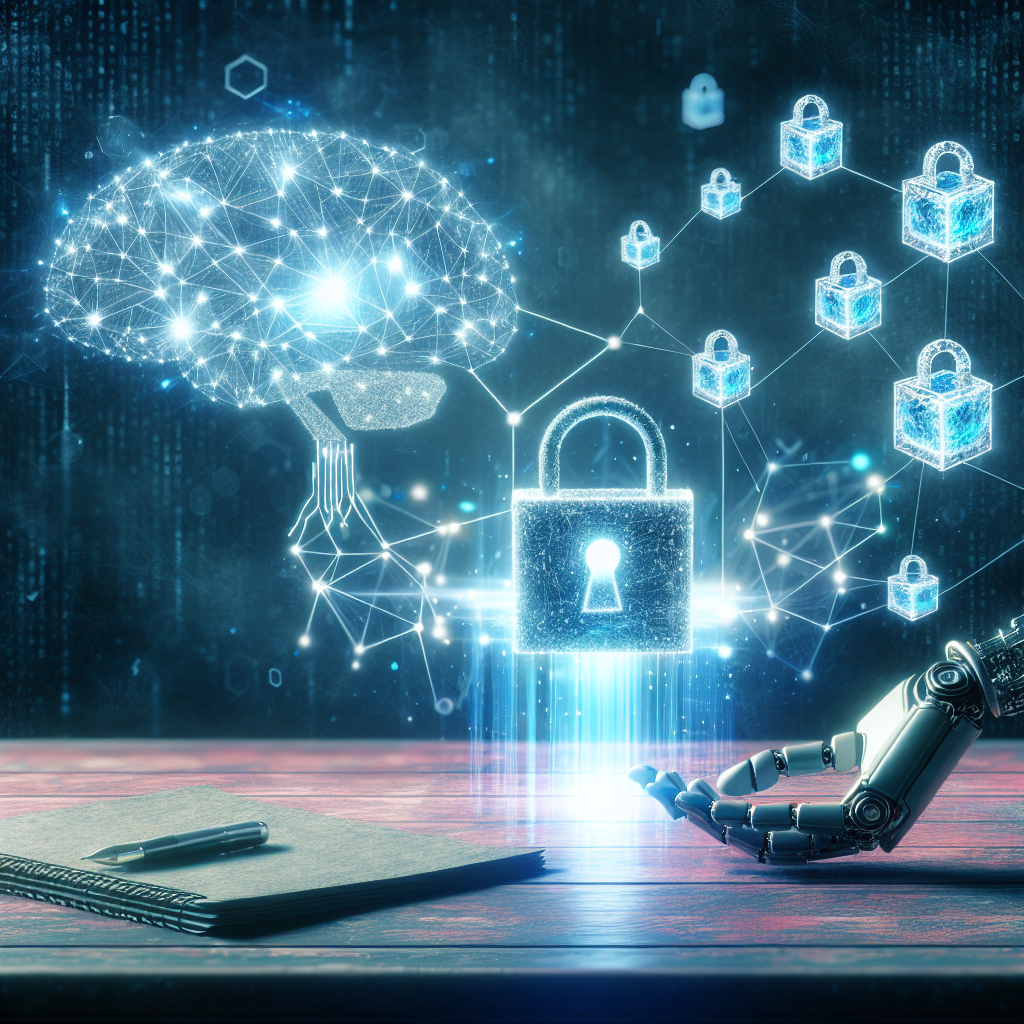AI Deployment in Blockchain: Enhancing Security
Blockchain technology has revolutionized the way we store and transfer data, providing a secure and transparent way to conduct transactions without the need for intermediaries. However, as with any technology, there are vulnerabilities that malicious actors may exploit. To address this issue, many companies are turning to artificial intelligence (AI) to enhance the security of their blockchain networks.
AI and blockchain may seem like an unlikely pairing, but when combined, they can provide a powerful tool for combating cyber threats and ensuring the integrity of blockchain transactions. In this article, we will explore how AI deployment in blockchain can enhance security and protect against various types of attacks.
How AI Enhances Security in Blockchain
1. Anomaly Detection
One of the key ways in which AI can enhance security in blockchain is through anomaly detection. By analyzing vast amounts of data, AI algorithms can identify unusual patterns or behaviors that may indicate a cyber attack. For example, AI can detect suspicious activity such as unauthorized access attempts, unusual transaction patterns, or abnormal network behavior.
By detecting anomalies in real-time, AI can alert system administrators to potential threats and take immediate action to prevent a security breach. This proactive approach to security can help to safeguard blockchain networks from malicious attacks and ensure the integrity of transactions.
2. Predictive Analytics
AI can also be used for predictive analytics in blockchain security. By analyzing historical data and trends, AI algorithms can predict potential security threats and vulnerabilities before they occur. This allows organizations to take preemptive measures to strengthen their security defenses and protect against future attacks.
Predictive analytics can help to identify weak points in a blockchain network, such as vulnerable nodes or outdated software, and provide recommendations for improving security. By leveraging AI for predictive analytics, organizations can stay one step ahead of cyber criminals and maintain the integrity of their blockchain transactions.
3. Fraud Detection
AI can be a powerful tool for detecting and preventing fraud in blockchain transactions. By analyzing transaction data in real-time, AI algorithms can identify suspicious patterns or behaviors that may indicate fraudulent activity. For example, AI can detect unauthorized transactions, fake identities, or money laundering schemes.
By flagging suspicious transactions, AI can help to prevent fraud and protect the integrity of blockchain networks. This can be particularly valuable for industries such as finance, healthcare, and supply chain management, where the security of transactions is critical.
4. Smart Contract Security
Smart contracts are self-executing contracts with the terms of the agreement directly written into code. While smart contracts offer many benefits, they can also be vulnerable to security threats such as coding errors or malicious attacks. AI can help to enhance the security of smart contracts by analyzing the code for vulnerabilities and identifying potential security risks.
By running automated tests and simulations, AI algorithms can detect flaws in smart contract code and provide recommendations for improving security. This can help to prevent vulnerabilities such as code exploits, buffer overflows, or denial-of-service attacks, and ensure the integrity of smart contract transactions.
5. Network Security
AI can also play a key role in enhancing network security in blockchain. By monitoring network traffic and analyzing data packets, AI algorithms can detect potential threats such as DDoS attacks, malware infections, or data breaches. AI can also identify network vulnerabilities and provide recommendations for strengthening security defenses.
By leveraging AI for network security, organizations can protect their blockchain networks from external threats and ensure the confidentiality, integrity, and availability of data. This can help to build trust among users and stakeholders and enhance the overall security of blockchain transactions.
FAQs
Q: How does AI deployment impact the performance of blockchain networks?
A: AI deployment can impact the performance of blockchain networks by increasing computational resources and network bandwidth. AI algorithms require significant processing power and memory to analyze vast amounts of data in real-time. This may lead to increased latency or slower transaction processing times. However, advancements in AI technology, such as edge computing and distributed processing, can help to mitigate these performance issues and optimize the efficiency of blockchain networks.
Q: What are the potential risks of using AI in blockchain security?
A: While AI can enhance security in blockchain, there are potential risks and challenges to consider. One risk is the potential for AI algorithms to make mistakes or misinterpret data, leading to false positives or false negatives in security alerts. Another risk is the susceptibility of AI to adversarial attacks, where malicious actors manipulate AI algorithms to evade detection or cause harm. To mitigate these risks, organizations should implement robust security measures, such as encryption, authentication, and access controls, to protect AI systems from cyber threats.
Q: How can organizations ensure the ethical use of AI in blockchain security?
A: To ensure the ethical use of AI in blockchain security, organizations should adhere to best practices and guidelines for responsible AI deployment. This includes transparency in AI algorithms and decision-making processes, accountability for the outcomes of AI systems, and fairness in how AI is used to protect against bias and discrimination. Organizations should also prioritize data privacy and security when collecting and analyzing data for AI algorithms, and ensure compliance with regulations such as GDPR and HIPAA.
In conclusion, AI deployment in blockchain can enhance security and protect against various types of cyber threats. By leveraging AI for anomaly detection, predictive analytics, fraud detection, smart contract security, and network security, organizations can strengthen the integrity of their blockchain transactions and build trust among users and stakeholders. While there are potential risks and challenges to consider, organizations can mitigate these by implementing robust security measures and ensuring the ethical use of AI in blockchain security. By harnessing the power of AI, organizations can stay ahead of cyber criminals and safeguard the future of blockchain technology.

